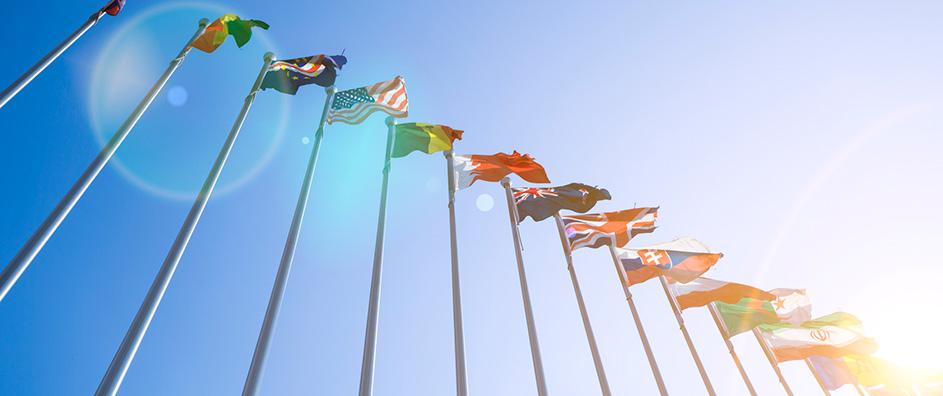Global diplomacy exists in a constant flux where the interplay between idealism and realism serves as the crux of international relations. This dynamic duality can be likened to a grand chessboard, where each move reflects either aspirational idealism or pragmatic realism. Delving into Bahá’í teachings unveils a nuanced perspective on this discourse, illuminating pathways toward a more harmonious global society. By scrutinizing the synergies and dissonances between these two paradigms, one can glean insights into not just the philosophy of Bahá’í thought, but the transformative potential inherent within its principles.
At the heart of Bahá’í teachings is the vision of a unified global community—an ideal that celebrates the intrinsic worth of every individual. Idealism, as championed by the Bahá’í Faith, posits that humanity can transcend its divisions, cultivating peace through collective efforts. This notion resonates with the esteemed belief in the oneness of humanity, inviting a reevaluation of diplomatic interactions. Underpinning this idealism is the concept of world citizenship, which compels individuals to envision themselves as members of a larger global family, rather than as mere subjects of nation-states. Such conceptualization stresses the need for diplomatic engagements rooted in altruism and mutual respect.
Conversely, realism operates under the premise that states prioritize their national interests, often resulting in competitive and, at times, adversarial interactions on the global stage. Realism’s tenets, which are entrenched in a pragmatic assessment of power dynamics, present a sobering counterpoint to idealistic aspirations. Yet, from a Bahá’í perspective, realism must not be an end in itself; rather, it should serve as a framework for recognizing the nuances of global interactions. This is where the teachings of the Bahá’í Faith bridge the gap between idealism and realism, advocating for a diplomatic practice that embraces strategic foresight while remaining committed to ethical imperatives.
One of the key tenets of the Bahá’í Faith is the concept of consultation. In the realm of diplomacy, the art of consultation is akin to a symphony—a harmonious blend of disparate voices converging to create a singular melody of common good. This approach mandates the inclusion of diverse perspectives, fostering an environment conducive to collaborative problem-solving. While idealism dreams of a world united through love and kindness, realism acknowledges the need for structured dialogues that recognize varying national interests. This dual approach can be instrumental in tackling issues such as global warming and pandemics, where collective action is indispensable, yet diverse motivations and interests must be judiciously navigated.
Furthermore, the Bahá’í view of justice acts as a cornerstone for this integrative paradigm. Justice, defined not merely as retribution but as equity and fairness, challenges the often self-serving nature of realism. It requires a balanced assessment, wherein the rights of individuals and communities are safeguarded against the whims of power politics. In this framework, diplomacy transcends mere negotiations, evolving into a sacred duty where the welfare of humanity is prioritized above personal or national aggrandizement. The Bahá’í perspective posits that when justice is embraced within diplomatic practices, it aligns both idealistic aspirations and realistic considerations, thus fortifying international relationships.
In essence, the Bahá’í approach to diplomacy acknowledges the fundamental reality of human imperfections while simultaneously aspiring towards loftier ideals. This tension between the achievable and the aspirational embodies the dual realities of our existence. As the Bahá’í Faith elucidates, it is through the articulation of a compelling vision for peace—one that is informed by the lessons of history—that diplomacy can be transformed from a transactional endeavor into a noble enterprise reflective of humanity’s highest aspirations.
To further illustrate this symbiosis, consider the metaphor of a garden. Idealism serves as the seeds that promise abundant bloom, while realism represents the tilling of the soil and the seasonal cycles of growth. Both elements are quintessential in nurturing a flourishing diplomatic landscape. Without the fertile ground of realism, the seeds of idealism risk withering in a context devoid of care and support. Conversely, without the vision granted by idealism, realism may devolve into a barren soil, incapable of yielding fruitful dialogue and collaboration.
As the world grapples with an array of complex global challenges—including economic disparity, armed conflict, and environmental degradation—the necessity for a Bahá’í-inspired diplomacy becomes ever more palpable. Diplomacy that embodies both idealistic and realistic principles offers not just a method for negotiation, but also a moral framework that thrives on cooperation, equity, and a shared pursuit of peace. Such a holistic approach delineates a pathway towards conflict resolution where collective interests are foregrounded, facilitating an era of unprecedented collaboration.
Moreover, the significance of education in fostering this duality cannot be understated. A well-informed populace is likened to a well-tended garden, where each individual becomes stewards of their diplomatic environment. Through education grounded in the Bahá’í teachings, individuals are equipped to consider the broader implications of their national interests, subsequently advocating for policies that harmonize idealism with realism. Thus, the principles of the Bahá’í Faith advocate for a transformative education that nurtures not just informed citizens, but enlightened global citizens.
Ultimately, the Bahá’í perspective on global diplomacy serves as a clarion call for a balanced approach—one that rigorously interrogates the interplay of idealism and realism. By marrying these two seemingly divergent worldviews, the teachings provide a framework for a more just and peaceful global society. It compels humanity to reimagine the very essence of diplomacy itself; not merely as a pragmatic tool for survival, but as a sacred endeavor with the potential to cultivate a global garden where all may flourish together.
